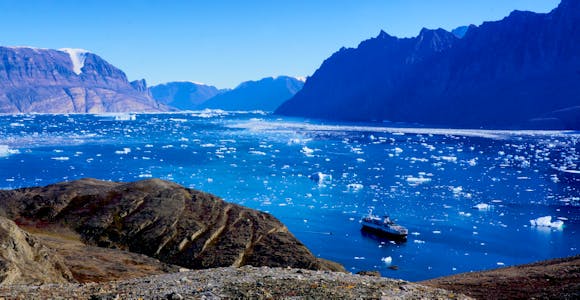
When to Visit Greenland
Greenland wears very different cloaks depending on when you choose to visit: spring, summer or autumn. Each has its own enchanting characteristics making it tough to decide which …
Discover MoreSpecial Offers Available: Swoop has access to the widest range of offers and can help you find the right trip, cabin, & price.
Expert impartial advice at no extra cost: no-nonsense advice on 500 voyages across 25 ships
The Arctic Experts. No Compromises: there’s no question we can’t answer
The only B Corp certified Arctic specialist: so your adventures can be a force for good
A full concierge service, unlike booking direct: we leave nothing to chance in delivering your perfect trip
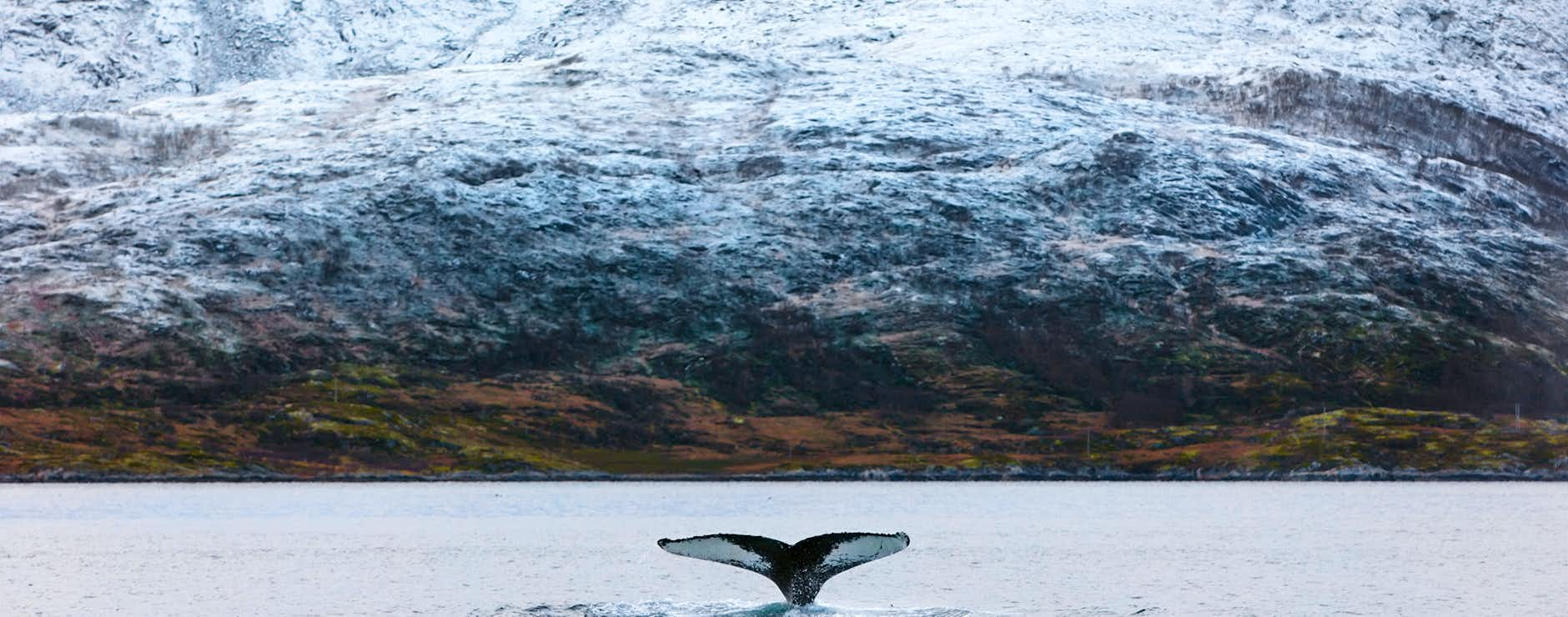
Greenland's wildlife is thriving. Though much of the island is covered by the ice cap, the dry land is colonised by musk ox and reindeer, while in the water, seals and whales are frequent sightings.
Special Offers:Swoop has access to the widest range of offers and can help you find the right trip, cabin, & price.
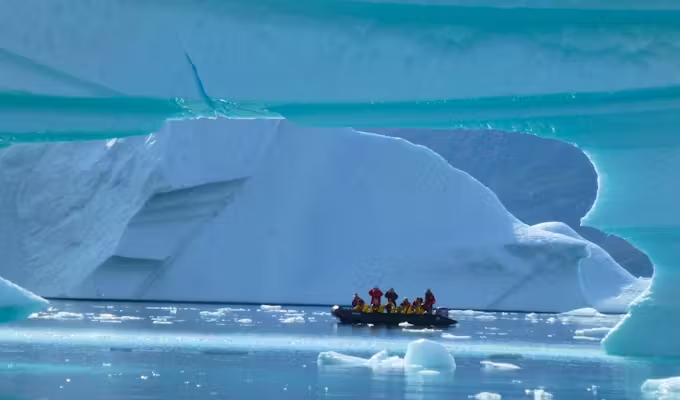
Introductions to the High Arctic don’t come much better. Traverse wildlife-rich Svalbard via East Greenland’s towering icebergs and autumnal tundra, then continue on to Iceland. Aurora sightings are possible at any point.…
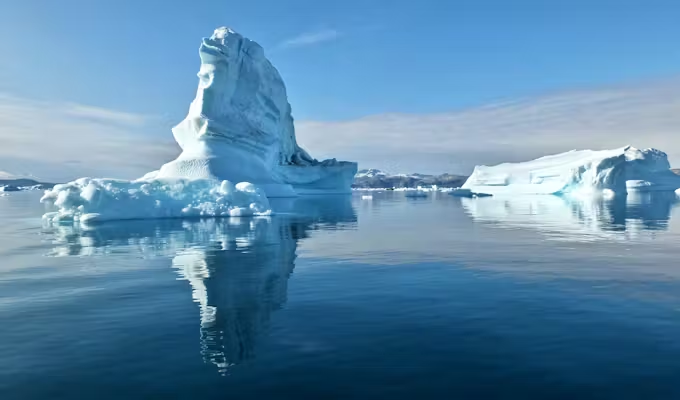
Beginning in Svalbard before sailing west across the Greenland Sea and exploring Greenland’s long eastern coastline to finish in Iceland, this is an audacious Arctic journey of startling diversity and contrast. Spectacular landscapes, towering glaciers and once-in-a-lifetime wildlife encounters all…
Although they resemble bison, these rather strange looking animals are actually very large goats and can weigh up to 900lbs. With impressive horns and enormous shaggy coats they are an iconic Arctic species that likes to feed on the rolling tundra in small family groups.
Their wool is ten times warmer than cashmere, but hard to process making it expensive to buy. The best place to spot herds of these creatures, is Kangerlussuaq on Greenland’s west coast. However, they can be encountered on the tundra in a number of other locations.
.JPG?auto=format,enhance,compress&fit=crop&crop=entropy,faces,focalpoint&w=0&h=288&q=60)
Musk Oxen in East Greenland
This species of the deer family (also known as caribou in North America) has been living wild in Greenland for thousands of years and is the most widespread land mammal on the west coast. You are fairly likely to see reindeer on a hike on the tundra, particularly between Paamiut and Uummannaq.
Reindeer have always been an important prey for hunters and are shy as a result and quick to spook.
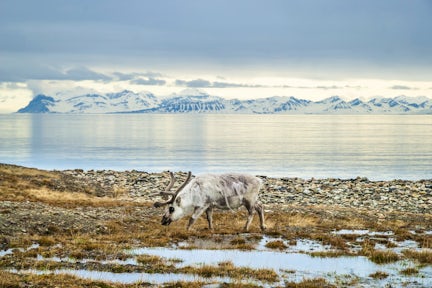
Graceful reindeer in Svalbard
Only approx. 60 bird species are permanent residents to Greenland, their numbers swell to about 235 by the rich variety of summer migratory visitors. One of the most striking is Greenland’s largest breeding bird, the white-tailed eagle, seen around southern coasts.
The auk is the most common breeding bird, but fulmars are sighted more frequently. The eider is the most important breeding wildfowl in Greenland - particularly common in coastal regions all over the island. The ptarmigan breeds all over Greenland, with white plumage in winter and grey in summer. The snow bunting is a summer visitor and you can see two species of falcon - peregrine and gyr.
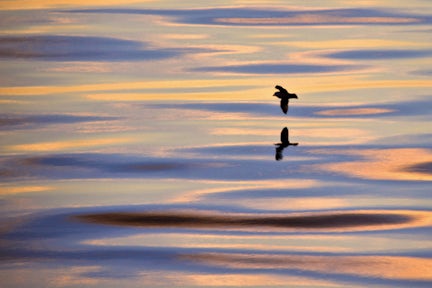
The coastal waters around Greenland teem with whales, with up to 15 species being natives or regular visitors. The best time to spot them is once the winter ice has retreated, from early June to late September.
The most commonly sighted varieties are humpback, fin and minke whales. Occasionally blue whales and pods of killer whales (orca) can also be spotted. The only whales that are year-round residents are bowhead, narwhal and beluga whales - all arctic species rarely sighted elsewhere. Whale hunting, for centuries an essential means of subsistence for Greenlanders, is still permitted, but strictly controlled by quotas.
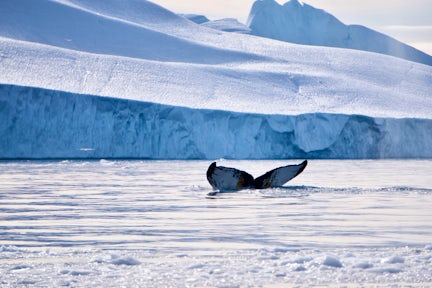
Humpback whale among the ice
While other parts of the Arctic offer better wildlife opportunities, the waters of west Greenland are outstanding for whale watching and very photogenic set against icebergs.
The world’s largest land predator is an iconic symbol, emblematic of the Arctic and features in Greenland’s official coat of arms.
Significant numbers live in the northernmost parts of West Greenland and in Northeast Greenland - the most remote and uninhabited regions. It’s therefore extremely rare to see a living polar bear. However, they do occasionally appear in the south during the summer months, having drifted southwards down the east coast with the pack ice before coming ashore.
Your best chances of spotting a polar bear in Greenland is onboard an expedition ship in east Greenland.
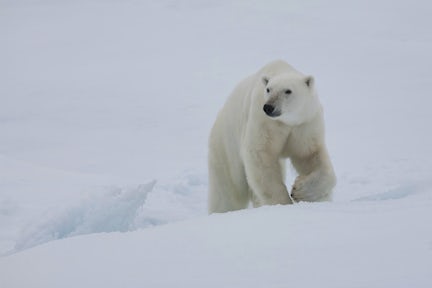
The seas around Greenland are thronged with seals. Seal hunting has been an essential part of the local way of life for thousands of years, and continues to this day. None of the five local species is threatened with extinction.
The harp seal is the most common species of seal in Greenland. It arrives on Greenland’s southern coast around May from its breeding grounds around Newfoundland. The hooded seal is the largest of the five species, while the ringed seal - polar bears favourite food - is the smallest. The other two species, the bearded seal and the common seal, are relatively rare.
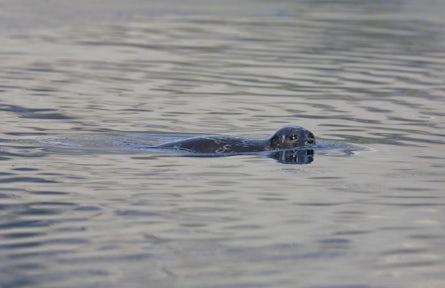
For wildlife, the summer and early autumn are definitely the best times to visit. The onset of summer’s warmer temperatures triggers the annual arrival of vast numbers of migratory birds - visiting only to breed, as well as whales.

Sun sets over Greenland

Greenland wears very different cloaks depending on when you choose to visit: spring, summer or autumn. Each has its own enchanting characteristics making it tough to decide which …
Discover More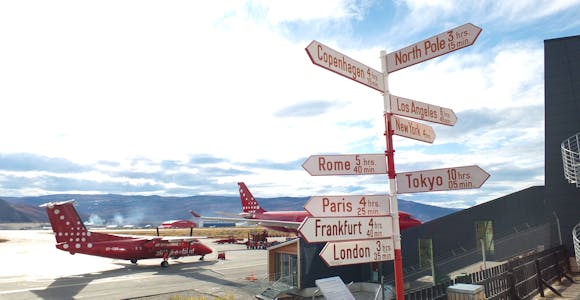
For such a large country surrounded by close neighbours, it isn’t a straightforward place to get to, but this is very much part of Greenland’s charm. Whether travelling by air …
Discover More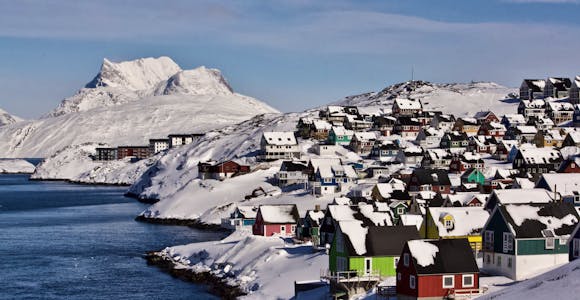
From Greenland’s vast size and diversity of landscape to her welcoming people and vibrant city, it’s a staggering place on so many levels. For the adventure traveller, few …
Discover More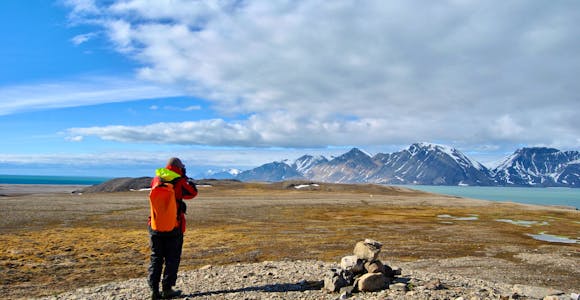
We're all clear on where the Arctic is located and why we want to visit, but its vastness and the sheer variety of experiences on offer can be a real challenge when deciding where …
Discover MoreMaking the correct choice of ship is key. With firsthand experience of all of the ships we offer, let Swoop help guide you to exactly the right one.
We'll spend some time listening to your aspirations, then discuss the kind of experience that might suit you.
Next we'll discuss the options, shortlist the best trips for you and present you our impartial recommendations.
We'll place a 24 hour hold on your preferred option - without obligation - whilst we talk through the details.
Our team of experts are ready to help you with any questions about a trip to the Arctic.
This website uses cookies to ensure you get the best experience on our website. Privacy policy
We don’t charge a commission and there are no hidden fees. Just impartial, expert advice from the leading Polar cruise agent. Schedule a call with our Arctic Experts today.